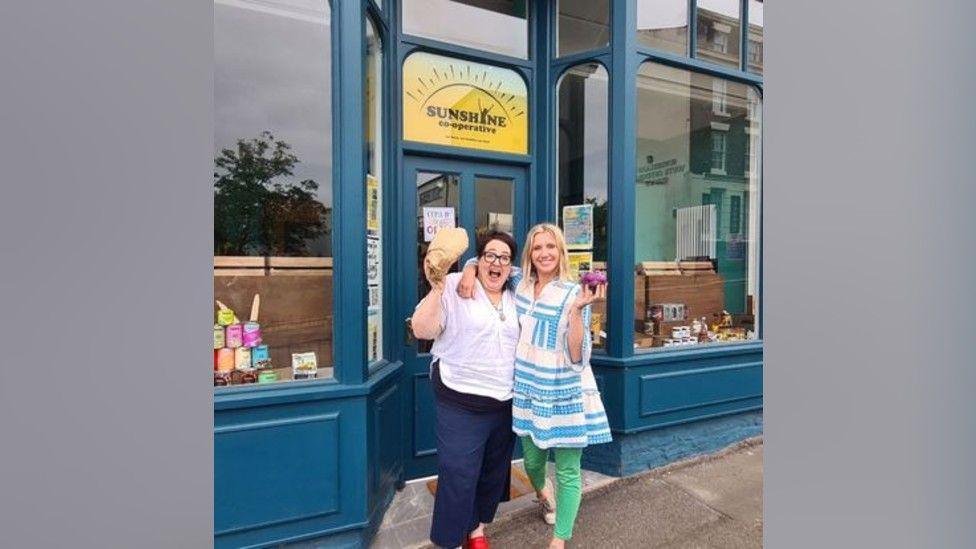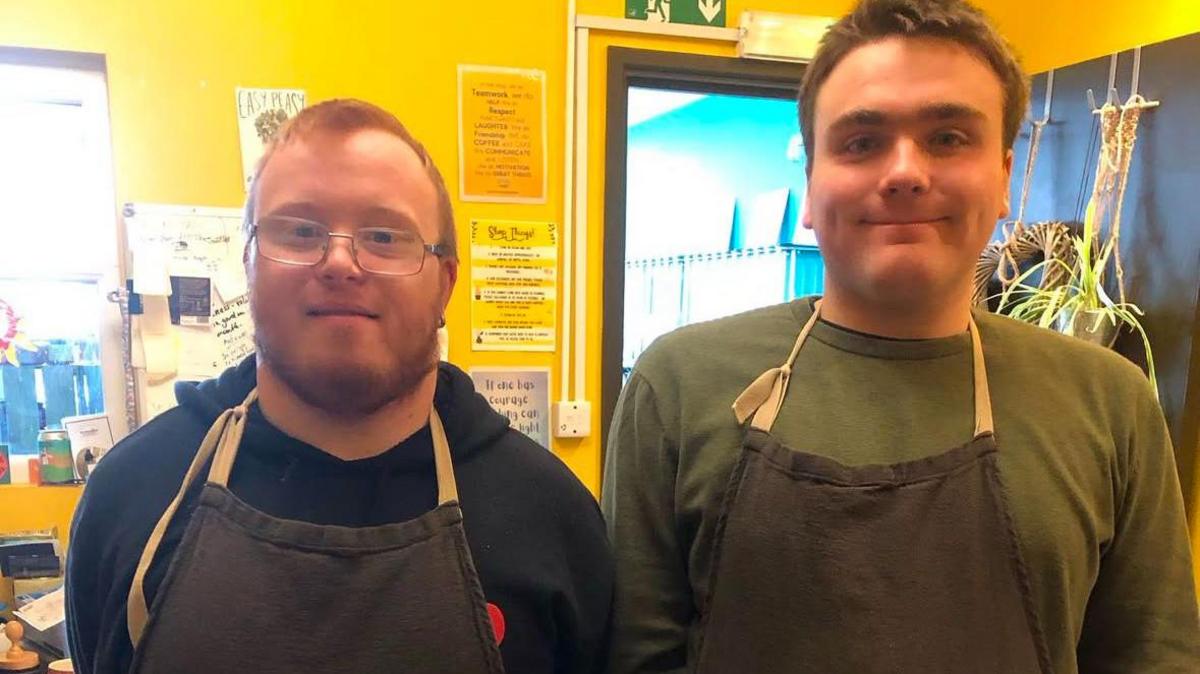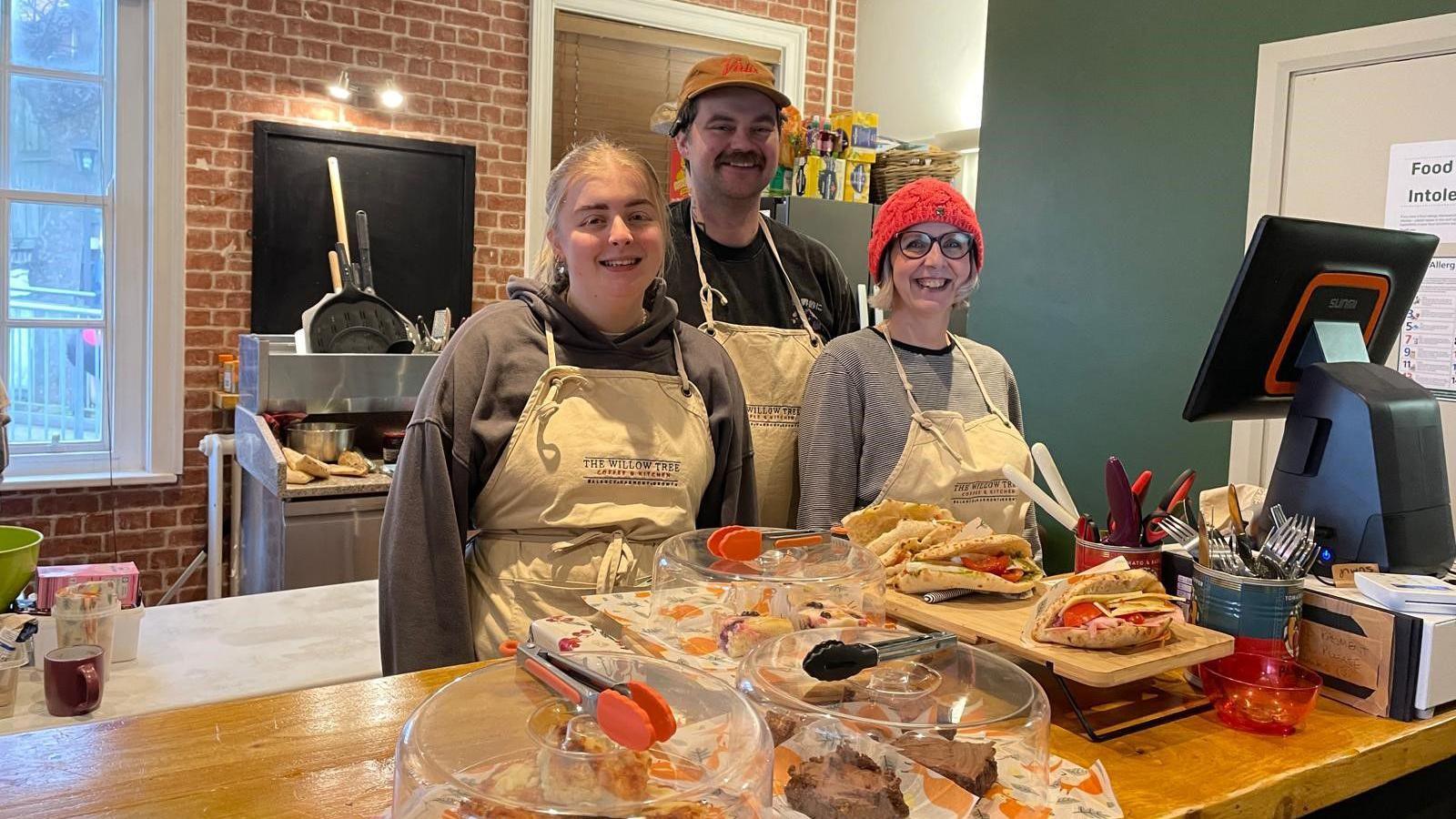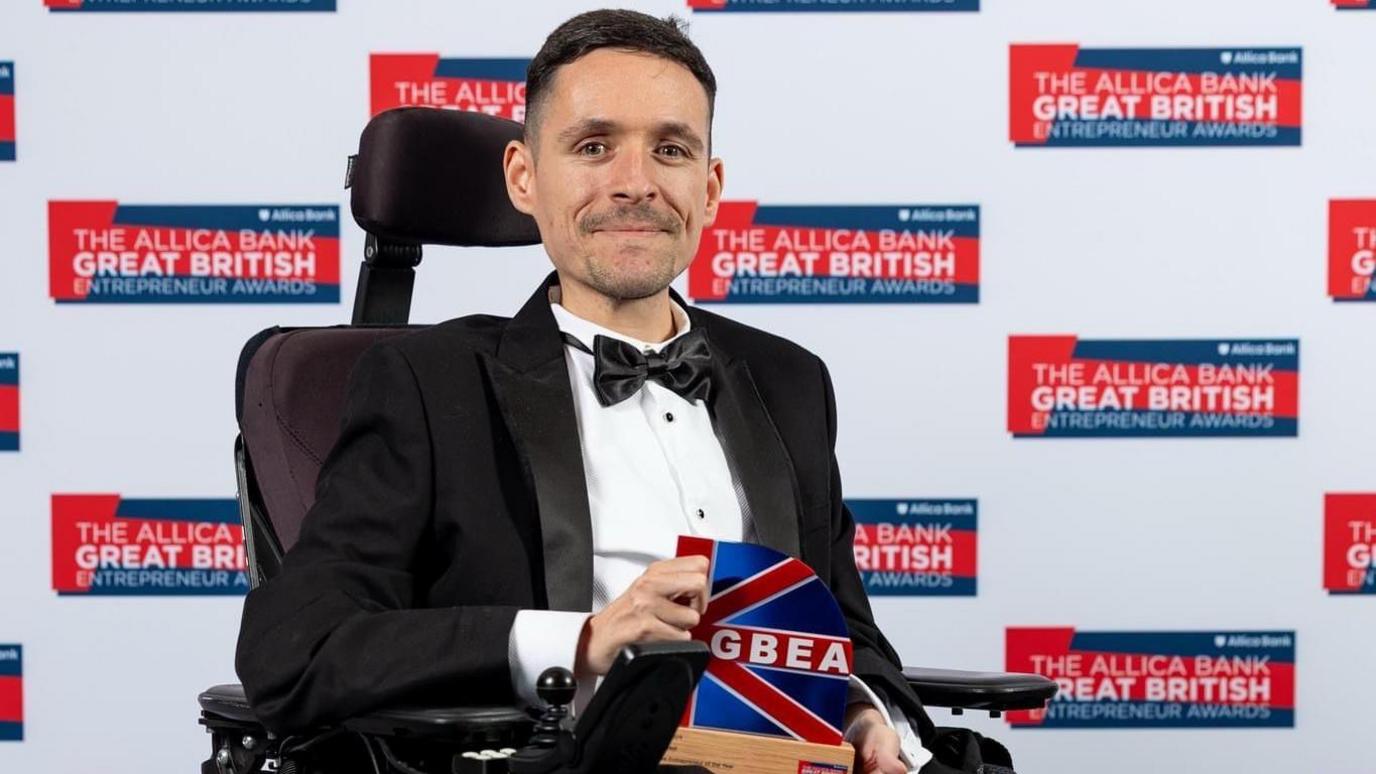Job-seekers with extra needs 'let down' by scheme

The Sunshine Co-Operative's second shop will help people with additional needs get jobs
- Published
The director of a business trying to help people with additional needs get jobs has said a government scheme meant to support employers was not doing enough.
The Sunshine Co-Operative, a community grocery shop and hub in Sunderland, wants to provide employment at its new store for people with disabilities including autism.
Director Andrea Clayson said the business had been trying to get support through the Government's Access to Work programme - but that various hurdles were "letting down" employers and future employees.
The Department for Work and Pensions (DWP) said it was reviewing the scheme and a future policy would be developed working with disabled people.
The Access to Work grant aims to help people with a disability, or a physical or mental health condition in the workplace, by paying for specialist equipment or providing support workers and job coaches.
Ms Clayson said those claiming support had no assurance they would get it and the uncertainty caused them to worry, leading to some prospective employees to give up.
"These are people with additional needs.
"They're already dealing with the fact no one wants to employ them, so when they find a supportive employer, they're panicking that they won't get the Access to Work help," she said.
Footing the bill
The Sunshine Co-Operative is based in High Street West, with a second shop opening later this year to provide a training programme.
Ms Clayson said the company would be best placed to provide job coaches for their employees instead of bringing in strangers for the role.
However, she said she was told the scheme would not pay for that work as it should be part of their business and if they wanted a job coach they would have to hire externally.
"We're talking about people with barriers to employment and breaking them down, but when it comes down to it, the government don't want to pay for it," she said.
"They expect organisations like ours to foot the whole bill and we just don't have the means to do that.
"We want to support our community and give people a chance and hope, but it's very much reliant on good will and unfortunately for many CICs, that does not pay the bills."

Volunteer Eden, right, hopes to work at the Sunshine Co-Operative if he can get an Access to Work grant
She added that plans to reduce support from job coaches after two to four weeks were putting staff at disadvantage and many people needed the support for at least 12 weeks.
"It's like they're pulling the rug from underneath the employees and employer," Ms Clayson said.
A consultation on the Access to Work scheme closed on 30 June and the programme is being reviewed.
A DWP spokesperson said: "We inherited an Access to Work scheme that is failing both employees and employers, which is why, as part of our welfare reform, we consulted on how it could be improved.
"We are reviewing all aspects of the scheme and will develop future policy with disabled people and the organisations that represent them."
Follow BBC Sunderland on X, external, Facebook, external, Nextdoor and Instagram, external.
Get in touch
Do you have a story suggestion for BBC Wear?
Related topics
- Published4 February

